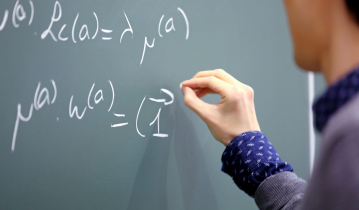 Jacint ENRICH MOYA will defend his thesis on Economics on December 16th, 2021 at 3:00 PM.
Jacint ENRICH MOYA will defend his thesis on Economics on December 16th, 2021 at 3:00 PM.
Auditorium 4 (to attend the lecture, please contact Elvire JALRAN)
Title: Essays on Agricultural Productivity and Development
Supervisor: François Salanié
Co-director: Sylvain Chabé-Ferret
Memberships are:
- KALA Namrata, Assistant Professor, MIT Sloan School of Management
- FOSTER Andrew, Professor, Brown University
- BUSTOS Paula, Professor, CEMFI
- SALEH Mohamed, Professor, University of Toulouse 1 Capitole – TSE
- SALANIÉ François, Senior Researcher, INRAE, University of Toulouse 1 Capitole – TSE
Abstract:
This thesis contains three essays that investigate the determinants of agricultural productivity and its effects on the structural transformation and economic development.
In the first chapter, I study the effect of the tractor on the structural transformation of the French economy between 1970 and 2000. First, I derive conditions under which tractor technical change, either from decreases in tractor prices or increases in tractor productivity, is labor-saving and pushes labor out of agriculture in an open economy two-sector model. Second, I propose a novel empirical strategy to identify the parameters of this model using data on tractor power and exogenous geographical variations in the terrain slope. My estimates show that tractor technical change is labor-saving and led to labor reallocation out of agriculture. I nevertheless show in counterfactual simulations that tractor technical change only accounted for around 4% of the overall labor real- location during this period. However, I observe heterogeneous effects with respect to the source of technical change. In particular, while reductions in tractor prices had limited impact on the de- mand for agricultural labor, improvements in tractor productivity have the potential to trigger the structural transformation.
The two other chapters focus on failures to allocate land to its more productive use and policies aimed at reducing land fragmentation. Land fragmentation is often believed to be detrimental to the efficiency of mechanized agriculture. The costs of land fragmentation might be as high as delaying the adoption of new technologies, thereby preventing the structural transformation from occurring. In the second chapter, Sylvain Chabé-Ferret and I study the effect of a major French land consolidation program on agricultural productivity. Between 1942 and 2008, more than half of the French Agricultural Area has changed hands as part of a major land reform called “Remembrement”. Using a Difference-In-Differences (DID) approach comparing communes where land consolidation occurred early to communes where land consolidation happened later, we do not find any detectable impact of land consolidation on tractor adoption, farms’ total factor productivity or farm size, although we find evidence that land consolidation increased the size of plots. Land consolidation does not seem to have triggered the structural transformation of French agriculture, but rather to have followed it.
In the third chapter, I study a bargaining problem between two farmers that want to exchange their plots in the presence of two-sided private information on their quality. In this setting, each plot is more valuable for the farmer who does not possess it initially and thus, under complete information, it is efficient always to trade. Using a mechanism design approach, I first characterize the constraints for an incentive compatible mechanism. Second, I show that the optimal mechanism maximizing expected gains from trade restricts exchanges to combinations of types that lie either on or below a frontier. Finally, I add an additional constraint by considering a situation without transfers. I find that trade can take place if each of the exchanged plots does not exceed a threshold. Overall, two-sided private information limits the most beneficial exchanges between high-quality plots.



